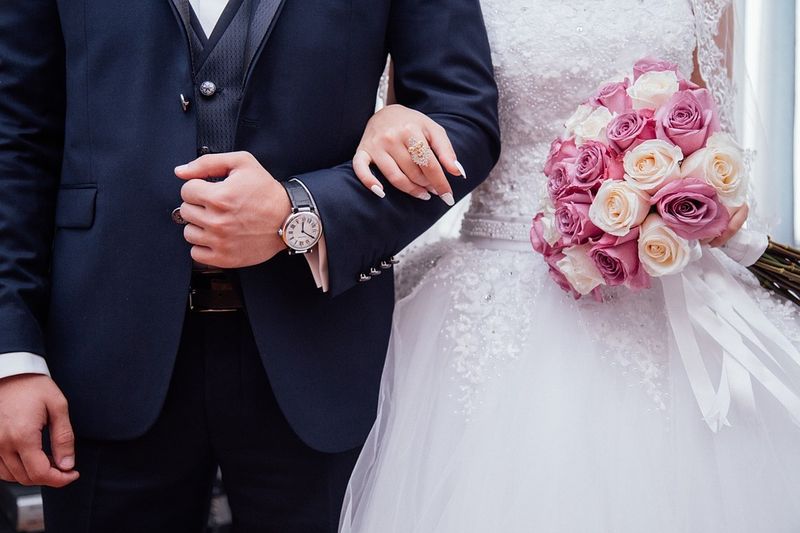Jun 17, 2019
Dating Differences: Going to Weddings
Soon, my boyfriend’s cousin is getting married and it brought up an interesting topic, Japanese weddings! Weddings are important in many cultures, but there are some differences between Japanese and American style weddings that caught my attention.

Photo credit: www.pixabay.com
One of the biggest differences that I noticed is that guests go alone. AKA, they fly solo. This is typically the polar opposite in America. People frequently bring a date, or a plus one, to the wedding so that they are not alone and they have someone to chat with. In Japan, this practice is thought of as strange because in most cases, the additional guest would not know the couple. To some extent, it makes sense, but I still think I would prefer not to go alone!
Another big difference is that there is no dancing. Japanese weddings are more like a formal dinner party. One part that my boyfriend finds particularly strange, is that there is typically a slide show showing pictures of the bride and groom since they were babies. They tend to give a lot of speeches as well. There are some speeches in American weddings, but most people look forward to the party that follows after. Plus, since there is not traditionally dancing in Japanese weddings, it means that they do not do first dances either.
Lastly, the biggest reason that I am dreading my friends getting married is the presents. In America, guests tend to bring gifts purchased based off a registry. However, in Japan, guests give money and there is a set amount to be polite based off of how well you know them. Based off of what I have been told, the lowest amount is 10,000 yen and goes up from there. So for a close friend, one of my old Japanese teachers informed me that I would be expected to give at least 30,000 yen. This is quite a large chunk of change.
I am sure that there are several more differences, but these are just some of the few that really stuck out to me. To be fair, I have never gone to a Japanese wedding, so I only have the information that my Japanese friends and professor have shared with me. I wonder what I will think once I actually experience attending the real thing…
How do you feel about Japanese weddings? Are there any large differences that really stick out to you?
Teacher, Traveler, Dancer -
Currently living in Gifu -
I love Japan, dance, cats, food, and fashion!



2 Comments
TonetoEdo
on Jun 17
Weddings in Japan can have so much variation. You’d be surprised. I’ve been to six in the last ten years. Everything from full on Shinto shrine wedding to Disney. You give a gift of money starting at ¥10,000. The amount depends on your relationship with the couple, and your situation (age, employee or student, etc.). The reception after the wedding, and the “nijikai” is where the fun happens. Some wedding receptions and nijikai have first dance, others have taiko, dance or magic show performances. I’ve seen slide shows at some receptions here. It’s true, you don’t bring people the bride and groom don’t know to a wedding here. You go with your circle of friends. At one wedding, I was seated beside my boyfriend, but he and I are part of the “circle” that the groom belongs to.
KamaT
on Jun 17
I've only been to the "western-style" weddings here in Japan. One of the things that has stuck me most has been the change of dress on the part of the bride. They start out in the traditional white -- fine -- but then change into a similarly "meringue" type of dress usually in quite loud colors -- yellows, pinks, purples. I think back home in the UK that would probably see a few chuckles among the guests. I'm always impressed by how time-efficient these things have been. Back home a wedding is pretty much an all day affair. That's fine if you're among friends and family, but it can feel sooo long if you're not so good at being social. Here in Japan, these things are done and dusted in 2 or 3 hours, in my experience.